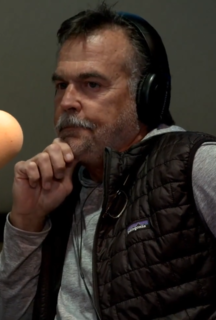A Quote by Thomas Paine
The protection of a man's person is more sacred than the protection of his property.
Related Quotes
Conscience is the most sacred of all property; other property depending in part on positive law, the exercise of that being a natural and unalienable right. To guard a man's house as his castle, to pay public and enforce private debts with the most exact faith, can give no title to invade a man's conscience, which is more sacred than his castle, or to withhold from it that debt of protection for which the public faith is pledged by the very nature and original conditions of the social pact.
The millions of laws which exist for the regulation of humanity appear upon investigation to be divided into three principal categories: protection of property, protection of persons, protection of government. And by analyzing each of these three categories, we arrive at the same logical and necessary conclusion: the uselessness and hurtfulness of law.
Two ideas are psychologically deep-rooted in man: self-protection and self-preservation. For self-protection man has created God, on whom he depends for his own protection, safety and security, just as a child depends on its parent. For self-preservation man has conceived the idea of an immortal Soul or Atman, which will live eternally. In his ignorance, weakness, fear, and desire, man needs these two things to console himself. Hence he clings to them deeply and fanatically.
The diversity in the faculties of men, from which the rights of property originate, is not less an insuperable obstacle to a uniformity of interests. The protection of these faculties is the first object of government. From the protection of different and unequal faculties of acquiring property, the possession of different degrees and kinds of property immediately results; and from the influence of these on the sentiments and views of the respective proprietors, ensues a division of the society into different interests and parties.
As property, honestly obtained, is best secured by an equality of rights, so ill-gotten property depends for protection on a monopoly of rights. He who has robbed another of his property, will next endeavor to disarm him of his rights, to secure that property; for when the robber becomes the legislator he believes himself secure.
In the nature of things, those who have no property and see their neighbors possess much more than they think them to need, cannot be favorable to laws made for the protection of property. When this class becomes numerous, it becomes clamorous. It looks on property as its prey and plunder, and is naturally ready, at times, for violence and revolution.
All of the services commonly thought to require the State-from the coining of money to police protection to the development of law in defense of the rights of person and property-can be and have been supplied far more efficiently and certainly more morally by private persons. The State is in no sense required by the nature of man; quite the contrary.



































